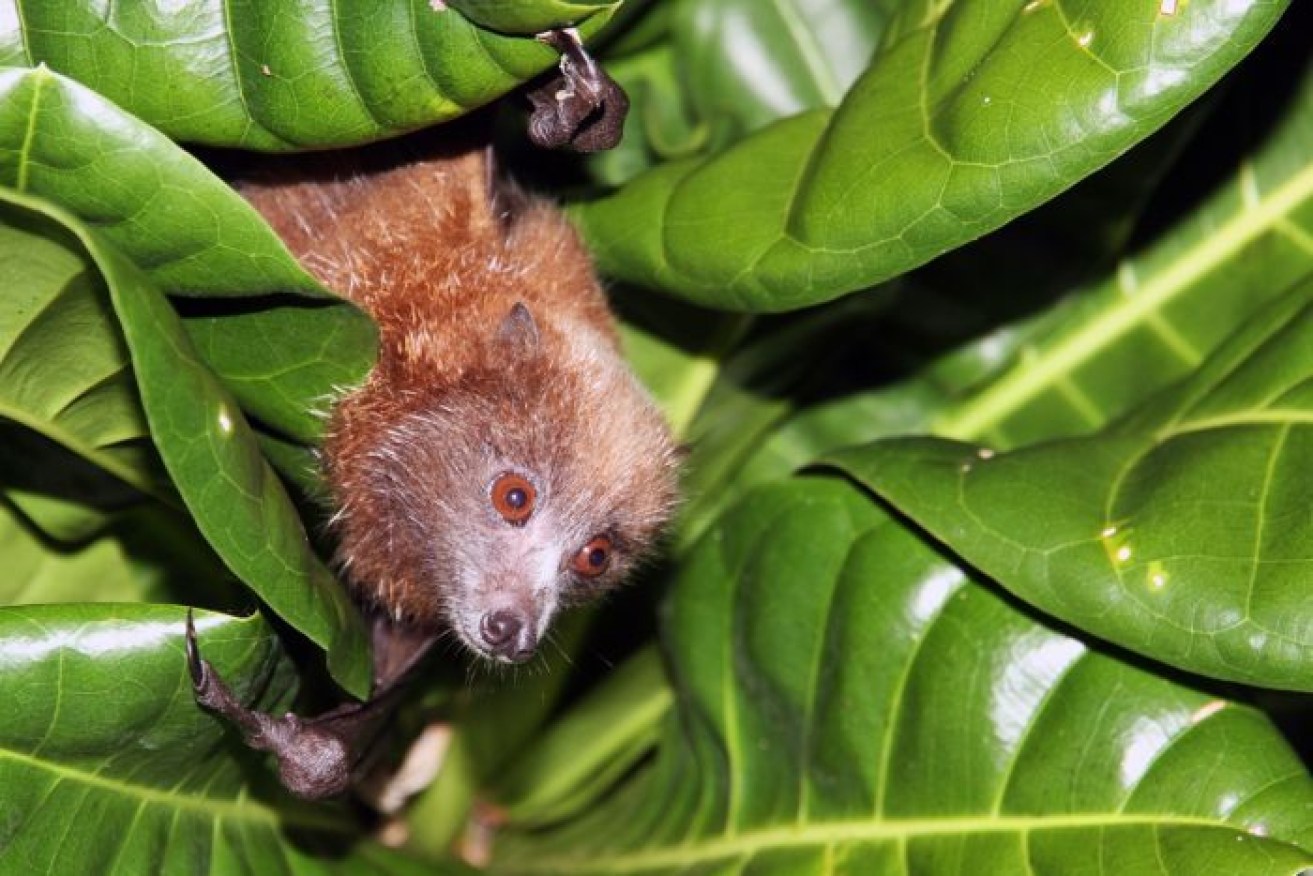Search for Pacific bats harks back to bygone era

This rare flying fox was found in a remote part of Solomon Islands and photographed for the first time in years. Photo: ABC/supplied, Tyrone Lavery
It sounds like something from the age of exploration — scientists sailing between tiny islands in the South Pacific Ocean looking for rare bats.
But that is exactly what happened recently as a group of researchers spent five weeks looking for five species of rare bats and flying foxes in Vanuatu and Solomon Islands.
On board was Chicago-based Australian scientist Tyrone Lavery, a post-doctoral researcher at the University of Kansas and a research associate with the Field Museum of Natural History.
At times, he said, it felt like being on a scientific expedition from a bygone era.
“What added to that feeling was the fact that the boat we were taking was owned by a marine archaeologist who was really interested in looking at wrecks,” he said.
“When we got to Vanikoro they were looking at the wreck of the Astrolabe and Boussole, which were two French ships wrecked there in 1788.”
Tube-nosed bat unsighted since 1907
Of the five species the researchers were looking for, one is listed as vulnerable, two are considered endangered, one is critically endangered and one, the tube-nosed bat, has not been seen since 1907.
“Mostly that’s because they [are] on really small areas of land so you can imagine that with any natural disaster like a cyclone it could wipe out huge areas of habitat for these species,” Dr Lavery said.
“Also in the Solomons those islands are now being logged.”
They did not find the tube-nosed bat, but they did find the flying foxes on the Banks group of islands in Vanuatu and on Nendo and Vanikoro islands in the Solomons.

The group took measurements and samples for DNA testing. Photo: Vanuatu Environmental Science Society
“The Vanikoro one is a really interesting story where for a long time it was thought to be lost,” Dr Lavery said.
“They actually thought it was from Guam and so for over a hundred years people thought it was missing until the 1930s when they found it again and now in this recent work we’ve been able to put it back on the map.”
Some people consider flying foxes to be pests because of the noise and mess they make and the damage they can do to fruit orchards.
But Dr Lavery said they perform a vital ecological role.
“Especially in places where you have disturbances like cyclones and now logging, bats play a really important role pollinating flowers, spreading seeds and helping those forests regenerate,” he said.
Locals happy to help and learn
Few outsiders visit these islands so the arrival of a group of scientific researchers was a big deal for the local communities.
The scientists said most people were supportive of their work and helped them carry out their research.
Martika Tahi, a project officer with the Vanuatu Environmental Science Society, said people’s views of the animals changed when told about the role they play in regenerating forests.
“They were surprised and I can tell they were happy to know about those ecosystem services,” she said.
“They thought bats were just there, but when we do the awareness they’re happy to know new information.”
Vanuatu Environmental Science Society CEO, Dr Christina Shaw, said the data they collected will be used to draw up conservation plans with input from local communities.
“In Vanuatu there is still quite a sense of pride in their land and their environment so the fact that these bats only lived on their islands and nowhere else in the world did make them have that desire to help us conserve them,” she said.
Dr Lavery is heading back to Chicago with his samples to conduct DNA testing.
He said it would be hard going back into the office after such an incredible trip.
“It’s never a culture shock coming here, but it’s always one going back, a big one,” he said.
“Everybody looking at their mobile phones, not having everybody willing to have a conversation with you.
“That’s a really great part of working in the Pacific.”








